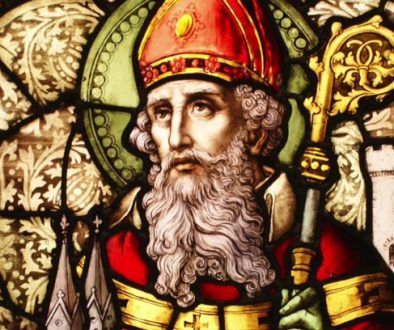Has Christianity Made A Difference In the Lives Of the Irish People?
A majority of people across the nation are of the opinion that the main religion in Ireland is Catholic. A significant number even hold that Ireland is a Catholic nation. However, even though Catholics are the largest single religious group in the nation, the Irish constitution does not refer to the nation as a Catholic country. The constitution merely says that all homage and public worship should be paid to the Almighty God. There is no religion that is given power to control the other. As a matter of fact, the Irish constitution clearly states that no single person should be penalized for believing in other religions. Freedom of worship is clearly enshrined in the constitution. Therefore, Ireland is by far the most religiously free country in the entire world.
Impact of religion in modern day Ireland
Interestingly, while over 90 percent of the Irish people stated that they were staunch Catholics as per the 2006 census, a Europoll that was conducted a few months before the census found out that only 72 percent of the Irish people believed in the existence of God. It is therefore possible to draw an inference from this that there are many Catholics in Ireland who are atheists. In spite of the numbers being diametrically opposed, they seem to suggest that religion still has a major role to play in the life of the Irish people in their day-to-day undertakings.
 The number of people who attend church has drastically dropped. According to a recent survey, the number of Irish Catholics who attend mass regularly are a mere 30 to 35 percent. This is a huge drop from the over 90 percent who attended mass in the early 1970s.
The number of people who attend church has drastically dropped. According to a recent survey, the number of Irish Catholics who attend mass regularly are a mere 30 to 35 percent. This is a huge drop from the over 90 percent who attended mass in the early 1970s.
A huge number of Irish people believe that going to church should be done only on special occasions. Such occasions are marriage, baptism of their kin, or funeral services for their loved ones. Any other functions outside these will not normally attract a large number of Irish people.
The issue of being a Protestant or a Catholic in Ireland is seen as a religious or a cultural statement – one of heritage rather than of belief.
Most outside observers used to view the conflict that existed for long in Ireland as a religious war. This was a major misunderstanding that never was, and never to be. The conflict was just a tussle between communities who held diverse views and hailed from divergent historical times and cultures.
Ireland is generally a country which allows a great measure of tolerance and respect for divergent views on religion and other beliefs. It is uncommon to experience discrimination based on one”s religion or religious affiliation. However, the same can be stated with any manner of confidence with regards to ethnicity.
Education and religion in Ireland
 Even though the Irish constitution does not place any religion above others, it would be hard to detect how true this actually is when assessing the education sector in Ireland. There is a widespread system in the nation where most of the elementary (primary) schools are funded by the state. These schools are referred to as National Schools, but they are largely seen to be Catholic schools even though they retain the name “national.” Though any student can attend these schools, and they do attend, it is worth noticing that the school boards are chaired by the presiding Catholic Bishop. Moreover, the Catholic Religion plays a central role in the development of the curriculum.
Even though the Irish constitution does not place any religion above others, it would be hard to detect how true this actually is when assessing the education sector in Ireland. There is a widespread system in the nation where most of the elementary (primary) schools are funded by the state. These schools are referred to as National Schools, but they are largely seen to be Catholic schools even though they retain the name “national.” Though any student can attend these schools, and they do attend, it is worth noticing that the school boards are chaired by the presiding Catholic Bishop. Moreover, the Catholic Religion plays a central role in the development of the curriculum.
Any student who wishes to attend a school that teaches other religions can only attend a private school. These private schools also receive state funding, even though such schools are not prevalent in many areas. Moreover, they ask for huge fees to cater for services that the state does not sponsor. The government is in the process of rectifying this anomaly, but this seems to be moving at a snail”s pace. It is for this reason that most people who do not normally subscribe to the Catholic religion end up looking for schools that do teach the religion. Christianity in Ireland has affected various sectors of the Irish economy, largely in a positive manner.



